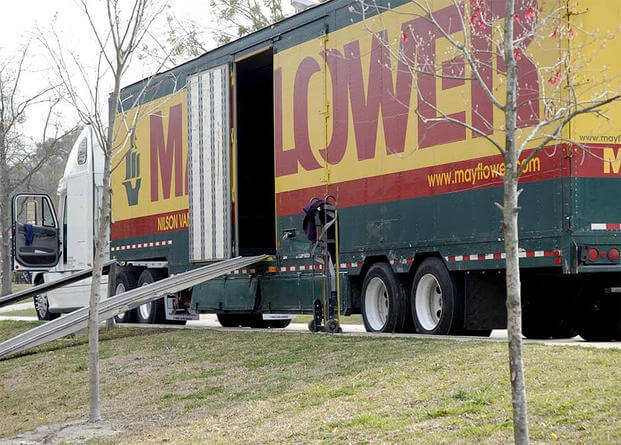If you're going through a voluntary military separation, the government will typically pay for one final military move up to six months after your final out date. But depending on where you are headed, you could be forced to pay some of that cost out of your own pocket.
What will the military pay for on your final PCS after voluntary separation? We talked with Defense Department military PCS experts to get all the details.
But first, a word of caution: While these are general rules for the DoD, each military service has its own rules and regulations and could change what they offer their troops at any time. Always check with your local transportation office for the latest on what is available to you.
Basic facts: Will the military pay for a final PCS move?
In most circumstances, the military will pay for you to make one last move -- but it will likely foot the bill only for you to move to your home of record or your place of entry. That means if you are stationed in San Diego, California, for example, and your home of record or place of entry is Los Angeles, California, what the military will pay for your move probably isn't very much.
So what do you do if you want to move somewhere other than your home of record or place of entry? Will you have to pay for the majority of your move yourself?
Not necessarily, Defense Department officials say. How much the DoD will pay for your move is based on a formula that combines the amount of weight you are permitted to move based on your rank, and the distance your goods are authorized to travel. If the weight you are moving is extremely low, for example, the DoD could still cover your whole shipment even if you are planning to go farther than your home of record or place of entry.
On the other hand, if your weight is very high and you are going beyond your allowed distance, you could be paying quite a bit on your own.
Paying out of pocket for a final military provided move
If you decide to let the military hire packers and movers for your final PCS, local transportation office officials will help you calculate how much extra your move may cost you out of pocket, officials said. You'll also likely be asked to sign a document saying that you were counseled about the potential extra costs.
After your goods are weighed and transported, the government will issue a DoD form DD-1131 cash collection voucher showing how much you owe. Depending on where you are living and your branch of service, you may need to go to your nearest installation to pay the bill or you may be able to pay by mail.
Officials said your household goods will be delivered regardless of whether you pay the overages bill. But be warned -- the money will likely be recouped by the DoD eventually, possibly through your tax return, officials said.
Doing your final move yourself
If you decide to make your final military move a "personally procured move" (PPM), formerly known as a "DITY" move, the process does not differ much from that used by service members staying in the service.
The primary difference, officials said, is how much the military will reimburse you after your move. The reimbursement rate will be based on the allowed-weight to allowed-distance formula. The government will pay you 95% of the amount it would've paid a contractor -- just like in any PPM move -- for the actual weight you area moving.
Which type of final PCS move will cost less out of pocket?
DoD officials said which move ends up costing a service member less out of pocket on his or her final PCS is based on a lot of factors, including where they are moving and how many pounds of belongings they are planning to take with them. The best thing for service members to do, officials said, is to meet with the local transportation office, learn their options and shop around.
Service members may be surprised, however, by which option ends up being cheaper. For example, if a service member is moving much farther than his home record, but has a much lower weight than his allowance, letting the DoD orchestrate the move could be cheaper, since what they will pay a contractor is based on the total amount allowed, not the actual weight moved.
Keep Up-to-Date for Your Next PCS
Get the inside information from those who know. Get PCS help and all the news and benefits information you need delivered straight to your inbox. Subscribe to Military.com now.














